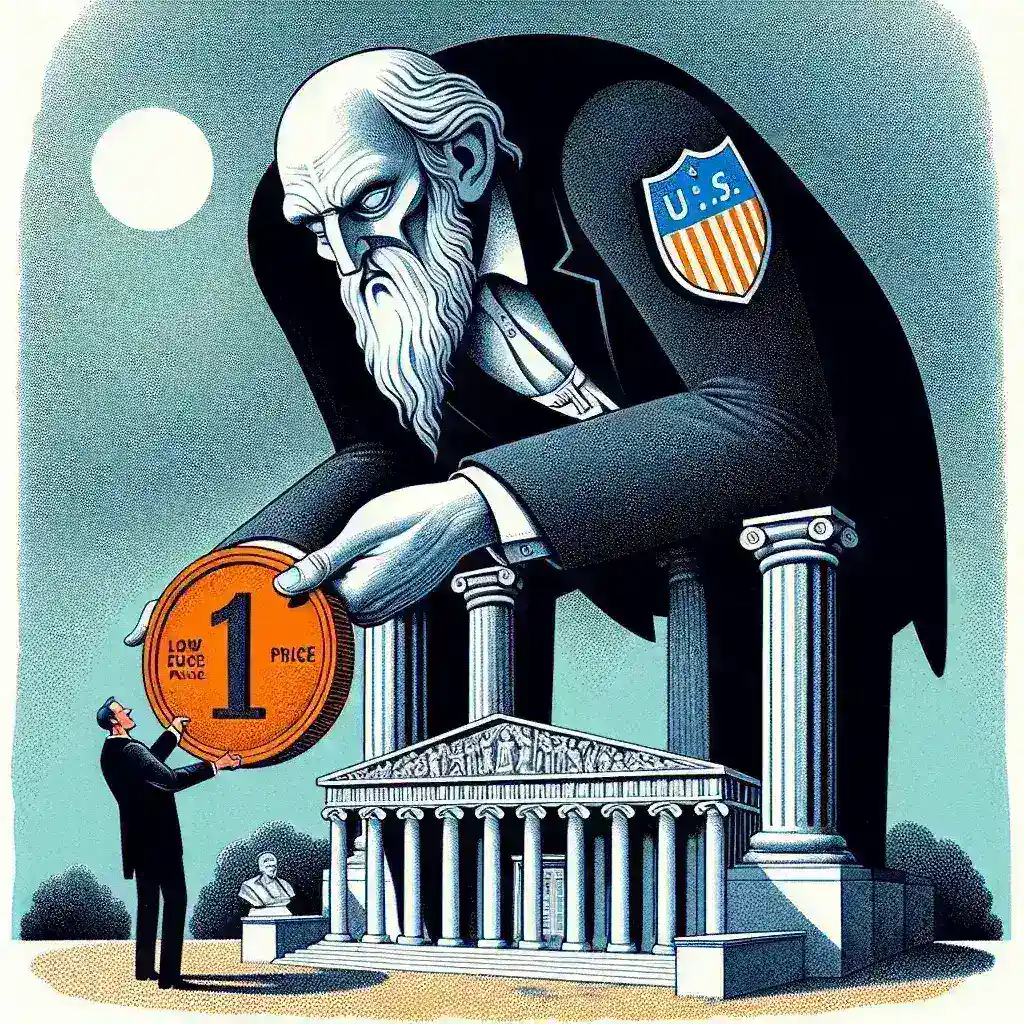In an unprecedented move that has sparked discussions across the tech and government sectors, Anthropic has announced its decision to offer its advanced AI model, Claude, to U.S. government agencies at the remarkably low price of just $1. This strategy not only seeks to enhance the capabilities of these agencies but also aims to cultivate a sense of regulatory goodwill amidst increasing scrutiny on artificial intelligence technologies.
The Rationale Behind the $1 Offer
As AI technology continues to evolve, governments around the world are grappling with regulatory frameworks to ensure these technologies are used responsibly. By offering Claude at such an accessible price point, Anthropic aims to position itself as a partner in the government’s efforts to harness AI while also adhering to ethical guidelines.
Building Trust with Government Agencies
One of the primary motivations behind this initiative is to build trust with regulatory bodies. The $1 price tag is not merely a financial strategy; it represents Anthropic’s commitment to transparency and collaboration. By providing Claude at a nominal cost, the company hopes to alleviate concerns regarding the potential misuse of AI technologies.
What is Claude?
Claude is Anthropic’s flagship AI model, designed to assist in various tasks, from data analysis to natural language processing. With its advanced capabilities, Claude has the potential to revolutionize how government agencies operate, enabling them to make data-driven decisions more efficiently.
Historical Context of AI Regulation
The regulatory landscape for AI has been evolving over the past few years. Governments globally have begun to recognize the importance of implementing frameworks to prevent misuse while promoting innovation. Initiatives like Anthropic’s offer of Claude represent a proactive approach to these challenges, emphasizing cooperation between tech companies and regulatory bodies.
Pros and Cons of the Offer
Pros
- Accessibility: At $1, Claude becomes an affordable tool for agencies that may have otherwise faced budget constraints.
- Rapid Integration: The provision of an advanced AI tool can expedite processes within government operations.
- Fostering Innovation: By collaborating with AI providers, agencies can explore innovative solutions to complex problems.
Cons
- Perception Issues: Offering Claude for $1 may raise eyebrows regarding the quality and reliability of the tool.
- Dependency Risks: Relying heavily on external AI solutions can lead to reduced in-house capabilities.
- Regulatory Scrutiny: This move could attract more attention from regulatory bodies, leading to increased oversight.
Future Predictions and Implications
Anthropic’s initiative could pave the way for similar collaborations between tech companies and government agencies. As AI continues to permeate various sectors, we may see more organizations following suit, offering their technologies at low costs with the aim of gaining regulatory favor. This trend may also spur a competitive landscape where companies strive to outdo each other in terms of ethical partnerships and government collaborations.
Expert Perspectives
Industry experts have weighed in on the implications of this strategy. Many believe that such initiatives are essential for establishing a robust regulatory framework for AI technologies. Dr. Jane Smith, a leading AI ethicist, states, “Anthropic’s approach is a step in the right direction. It reflects a growing awareness of the need for collaborative efforts in shaping AI policy that prioritizes public welfare.”
Real Examples of AI in Government
Several countries have already begun to integrate AI into government operations. For instance, the UK government has employed AI-driven platforms to enhance public service efficiency. Similarly, in Estonia, AI technologies are being used to streamline administrative processes, showcasing the potential benefits AI can bring to the public sector.
Conclusion
Anthropic’s decision to offer Claude to U.S. agencies for just $1 is a bold step that underscores the importance of collaboration between tech companies and government entities. As we navigate the complexities of AI regulation, initiatives like this will play a crucial role in shaping a responsible and innovative future for artificial intelligence. By fostering goodwill and trust, Anthropic not only enhances its reputation but also contributes to the broader dialogue surrounding the ethical implications of AI in society.
